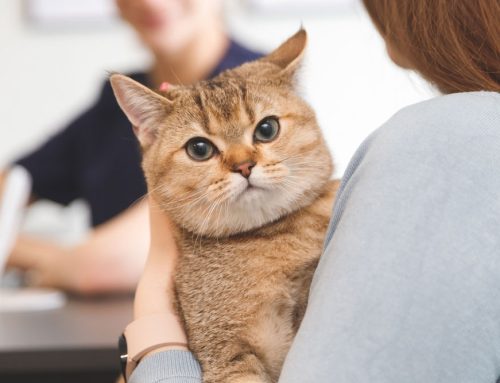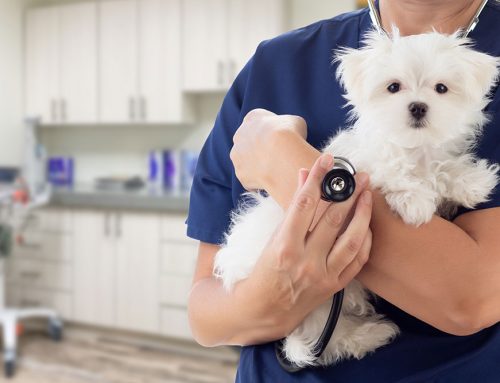Understanding Urinary Tract Infections in Pets: Causes, Treatment, and Prevention
What is a Urinary Tract Infection (UTI)?
A urinary tract infection (UTI) in pets occurs when bacteria enter the urinary system, leading to inflammation and infection of the bladder (cystitis) and urethra. UTIs can cause pain, discomfort, and potential complications like bladder stones, kidney infections, or urinary obstructions.
Both dogs and cats can develop UTIs, but male cats are particularly at risk for urinary obstructions, which have similar symptoms as a UTI but can quickly become life-threatening if untreated. These blockages, often caused by urinary crystals, inflammation, or mucus plugs, require immediate veterinary attention to prevent serious complications Urinary Obstruction in Male Cats – ACVS.
Symptoms of UTIs in Pets
Pets suffering from UTIs may exhibit:
- Frequent urination with little success
- Straining or discomfort while urinating
- Blood-tinged or cloudy urine
- Strong-smelling urine
- Excessive licking of the genital area
- Lethargy or irritability
- Sudden house soiling in previously trained pets
Recognizing these signs early is important to prevent the infection from worsening. Untreated UTIs can lead to bladder infections that progress to the kidneys, increasing the risk of long-term damage. More information about urinary tract infections and their effects on overall health can be found through Cornell University.
Causes of UTIs in Pets
UTIs are commonly caused by bacterial infections, with E. coli being the most frequent culprit. However, several factors can increase the likelihood of a UTI, including:
Underlying Health Conditions
Conditions like diabetes can predispose pets to recurrent urinary infections. The excess sugar in the urine creates an ideal environment for bacterial growth, increasing the risk of chronic UTIs- read more from AAHA at Not So Sweet: Diabetes in Pets.
Urinary Stones and Blockages
Bladder stones can cause chronic irritation, making infections more likely. Stones may also obstruct urine flow, leading to stagnation and bacterial overgrowth– Urinary Stones in Small Animals – ACVS.
Poor Hygiene and Grooming
Overweight pets or long-haired breeds may struggle with self-grooming, allowing bacteria to accumulate near the urethra. Regular hygiene maintenance is essential to prevent infections from developing.
Diagnosing and Treating UTIs in Pets
How UTIs Are Diagnosed
Veterinarians use a combination of tests to confirm UTIs, including:
- Urinalysis to detect bacteria, white blood cells, and abnormalities in urine composition
- Urine culture to identify the specific bacteria causing infection
- Ultrasound or X-rays to detect bladder stones, tumors, or structural abnormalities
Treatment Options
Treatment depends on the underlying cause and severity of the infection:
- Antibiotics are prescribed based on urine culture results to eliminate bacteria
- Anti-inflammatory medications may be used to reduce bladder irritation
- Increased hydration helps flush bacteria from the urinary system
- Dietary adjustments can prevent the recurrence of stones and infections
For pets with recurring UTIs or bladder stones, a tailored treatment plan is often required. If you suspect your pet has a UTI, scheduling an exam as soon as possible can prevent complications- Contact Family Veterinary Care of Oakdale.
Preventing UTIs in Pets
Hydration is Key
Encouraging your pet to drink more water is one of the simplest and most effective ways to prevent UTIs. Adequate hydration dilutes urine and helps flush bacteria from the bladder before infections can take hold.
Placing multiple water bowls around your home or investing in a pet water fountain can increase water consumption. For pets prone to UTIs or bladder stones, switching to a moisture-rich diet with wet food can also be beneficial.
Dietary Adjustments for Urinary Health
The right nutrition plays a crucial role in maintaining urinary tract health. Certain prescription diets are formulated to dissolve crystals, prevent stone formation, and regulate urine pH.
Speak with your veterinarian about urinary support diets and whether they may be beneficial for your pet.
Regular Veterinary Check-Ups
Routine wellness exams allow veterinarians to detect early signs of urinary issues before they become serious. Regular urine screenings can help monitor pets with a history of recurrent infections, stones, or diabetes– Schedule a Preventative Care Exam.
Preventing Licking and Irritation
Excessive licking of the genital area can worsen irritation and contribute to infection. After treatment, some pets may require an Elizabethan collar (E-collar) or inflatable collar to prevent licking. Keeping the area clean and ensuring proper hygiene can also reduce the risk of future infections.
Grooming and Hygiene Practices
Maintaining good hygiene is especially important for pets at higher risk of UTIs. Regular grooming can help reduce bacterial buildup, particularly for:
- Long-haired breeds prone to urine-soaked fur
- Overweight pets that struggle with self-grooming
- Senior pets with weakened immune systems
Trimming fur around the genital area and cleaning with pet-safe wipes after urination can help prevent bacteria from spreading.
Urinary Obstructions: A Life-Threatening Emergency
Recognizing a Urinary Blockage
Male cats are particularly vulnerable to urinary blockages, which can occur when crystals, mucus, or stones obstruct the urethra. This prevents urination and leads to a rapid buildup of toxins in the bloodstream.
Signs of a blockage include:
- Straining to urinate with little or no output
- Vocalizing in pain while attempting to urinate
- Excessive grooming of the genital area
- Vomiting, lethargy, or collapse
Urinary obstruction is a medical emergency requiring immediate intervention. If your pet is unable to urinate, seek veterinary care immediately.
Keeping Your Pet’s Urinary System Healthy
Preventing UTIs, urinary stones, and blockages requires a proactive approach to pet care. By focusing on hydration, proper diet, hygiene, and regular veterinary visits, pet owners can significantly reduce the risk of these painful and potentially life-threatening conditions.
At Family Veterinary Care of Oakdale, we are committed to helping your pet stay healthy and comfortable. If you have concerns about your pet’s urinary health, schedule an exam- Book an Appointment today!











Leave A Comment